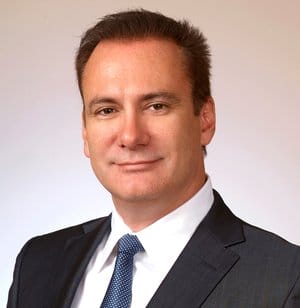
What Physicians Bring to Hospital Leadership
By Michael J. Zappa, MD, FACEP
I am often asked today if I am a doctor or an administrator, my response is both—always! You might ask, can a physician really be both? The answer is yes, though not every physician. If you take the group of all physicians, the first cut is those that are interested, then it is narrowed by those that are prepared: either through formal education, life experience, or both. The final cut is those that have the demonstrated ability to lead by inspiring a diverse team and operationalizing a vision. Today this represents a rather narrow playing field.
It is important to remember that doctors are different; many have dreamed of being a physician since childhood, and rank among the best and brightest, with often only the top 0.5% of high school students eventually being accepted into medical school.
Physician Executives are wired differently; they are decisive, based on an unwavering priority hierarchy:
- Patients
- Mission of the Organization
- Personal Needs
No one debates their clinical expertise, but they also bring operational efficiency and are natural caring stewards as a result of years of bedside experience that cannot be taught in a classroom or read about with the same impact.
Many critical advances in medicine over the years have resulted from the innovation and visionary talents of physicians; healthcare for tomorrow definitely needs the creative disruption that can only come from sharing a new vision and reaching for it from a different perspective.
Healthcare is a little out of step with many other industries that support the concept that technical expertise can position someone to be a stronger manager and leader: actors become Hollywood producers and directors, star athletes become coaches and managers, plumbers become general contractors, etc. According to Amanda Goodall of the London School of Business: “Leaders should first be experts in the core business of their organization.” See her article entitled, “If Your Boss Could Do Your Job, You’re More Likely to Be Happy At Work” for more insight.
According to Modern Healthcare, only 5% of hospital CEOs nationwide are physicians, yet the routinely top-ranked healthcare systems are led by physicians. US News and World Report studied the 115 largest US hospital systems and found a 25% improvement in quality metrics in physician-led hospitals versus non-physician-led entities with no loss of financial performance.
So, beyond the skills that got physicians into medical school, through residency, and made them successful practitioners, if you’re looking for physician leaders to join the C-suite be sure they have the following additional characteristics:
- Optimistic
- Motivated to Share Success
- Resilient
- Even-tempered
- Clinically Respected
When you find a physician with that skill set who is willing, prepared, and able—hold on, because that white coat might just be the superhero cape hospital leadership is looking for.
About Michael J. Zappa, MD
Dr. Michael J. Zappa is the president of Highsmith-Rainey Specialty Hospital, and Cape Fear Valley Health System Vice President and Associate Chief Medical Officer. He balances business acumen with clinical expertise, and shares his thoughts on leadership and the healthcare industry at mikezappa.com.
The Editorial Team at Healthcare Business Today is made up of skilled healthcare writers and experts, led by our managing editor, Daniel Casciato, who has over 25 years of experience in healthcare writing. Since 1998, we have produced compelling and informative content for numerous publications, establishing ourselves as a trusted resource for health and wellness information. We offer readers access to fresh health, medicine, science, and technology developments and the latest in patient news, emphasizing how these developments affect our lives.








